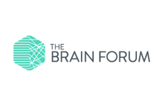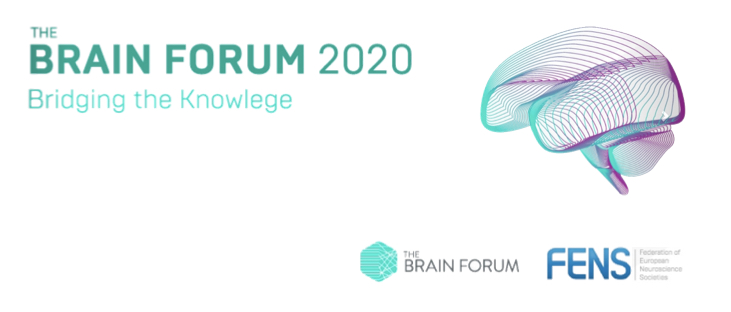Brain Forum to host Brain Debates focusing on mental health, neuroplasticity and mindfulness, in partnership with FENS
Debates to take place at the 12th FENS Forum of Neuroscience 11 – 15 July, 2020.
The Brain Forum, a Foundation that convenes world leaders in science, technology, healthcare and business to advance our understanding of how the brain works, is organising two debates focused on the mental health crisis, mindfulness and neuroplasticity both during and after the pandemic. These will feature within the FENS Forum of Neuroscience, the largest international neuroscience meeting in Europe, from 11th to 15th July 2020.
FENS, the largest neuroscience organisation in Europe, with more than 20,000 member scientists across 33 countries, has a mission of advancing research and education in the international community. In partnership with FENS, the Brain Forum’s focus is hosting two debates on July 14th, involving leading experts from the international multi-disciplinary neuroscientific community. The debates can be accessed online by registering to attend the FENS Forum, and will be available after the event at thebrainforum.org/annual-conference/the-brain-forum-2020
The debates will be hosted by television presenter Anna Williamson who, having overcome her own troubles with anxiety disorder in the past, has gone on to become an author, counsellor, life coach and an official ambassador of the mental health charity Mind, helping others tackle anxiety and depression as well as working to remove stigma attached to mental health issues.
The first debate, “mental health crisis in a knowledge economy”, explores how an increased reliance on intelligence and knowledge-based activities can take a toll on mental health. Mental health issues affect over 400 million people around the world at a great cost to the economy as well as health-related burden. The COVID-19 pandemic has added to the adverse effects on psychological and social wellbeing due to stresses of unemployment, isolation, infection fears and worsening physical health. The panel will discuss the relationship between stress, neuroplasticity and resilience and its relevance to mental wellbeing both during and after pandemics. Speakers will be:
- Paul Litchfield CBE OStJ FRCP FFOM is a British physician, and Chair of the What Works Centre for Wellbeing – an independent organisation that promotes evidence-based policy to improve wellbeing. He was Chief Medical Officer for BT Group plc from 2001 to 2018 where he pioneered UK and European initiatives in the specific field of improving workplace health and safety and reducing stigma around mental health issues. Dr Litchfield is also co-chair of the National Forum for Health and Wellbeing in the Workplace and is a member of the NHS Healthy Workforce Advisory Board, the Health and Safety Executive Workplace Health Expert Committee and the Economic and Social Research Council’s Great Assessment Panel. Dr Litchfield’s profound influence on workplace wellbeing has been recognised with an OBE in 2007 for his impact on occupational health and, more recently, he was awarded CBE for his services for the betterment of workplace wellbeing.
- Alastair Campbell, best known for his role as former British Prime Minister Tony Blair’s director of communications and strategy, in recent years, he has become involved with mental health charities, speaking about his own experiences with depression, psychosis and addiction. He has garnered considerable praise from mental health charities and campaign groups for helping break down the taboo surrounding mental health, leading to his achievement as the ‘Mind Champion of the Year’ in 2009.
- Professor Carmen Sandi, PhD, Brain Mind Institute, Ecole Polytechnique Federale de Lausanne. Carmen Sandi is a Professor at the Swiss Federal Institute of Technology Lausanne (EPFL), where she is the Director of the Brain Mind Institute and leads the Laboratory of Behavioural Genetics. Professor Sandi has been the President of FENS since 2018.
- Andrew Jack, Global Education Editor, Financial Times. Andrew Jack writes on educational issues around the world and is editorial lead for the free FT schools programme.
The second debate, “does mindfulness really work?” focusses on the mechanisms, implications and role of neuroplasticity in mindfulness and whether it really can achieve a noticeable impact in daily life. These subjects were selected to deliberate on how advanced scientific understanding about brain physiology can be applied to help improve mental wellbeing – directly relating to The Brain Forum’s aim of translating science to real-world solutions. Speakers will include:
- Professor Sara Lazar PhD, Harvard Medical School. Sara W. Lazar, PhD is an Associate Researcher in the Psychiatry Department at Massachusetts General Hospital and an Assistant Professor in Psychology at Harvard Medical School focusing on neural mechanisms underlying the beneficial effects of yoga. The Lazar Lab at Harvard University studies the impact of yoga and meditation on various cognitive and behavioral functions.
- Professor Murali Doraiswamy, Professor of Psychiatry and Behavioural Sciences, Duke University School of Medicine. Prof. Murali Doraiswamy MBBS FRCP FANA is professor of psychiatry and medicine at Duke University School of Medicine where he is a highly cited neuroscientist at the Duke Institute for Brain Sciences.
- Dr. Miguel Farias, Psychologist and Researcher, Coventry University. Dr Farias’ primary research explores the biological roots and psychological impact of beliefs and spiritual practices, including meditation, using a combination of experimental methods from social and biological psychology, personality theory, and cognitive neurosciences. Dr Farias warns of the potentially damaging effects of mindfulness meditation and is author of ‘The Buddha Pill: can meditation change you?’
- Will Williams, Meditation Expert, Author, Founder of Beeja Meditation. By sharing his simple tools from his London meditation centre, he works to help create a healthier and happier world. His book The Effortless Mind offers an excellent insight into the theory and benefits of meditation.
Dr. Jamil El-Imad, CEO of The Brain Forum, comments: “Brain disorders cost Europe over 700 billion euros and represent 35% of Europe’s total disease burden. However, most brain disorders are still not fully understood. One in five of all MS patients are misdiagnosed! One in three of epilepsy patients are misdiagnosed.
Our debates will focus on this crisis and possible solutions. Better understanding of the human brain is key to unlocking a new generation of treatments for both mental and neurological brain diseases. We need to accelerate scientific progress in our understanding of the human brain, in the treatment of brain related diseases and in helping find new preventative ways to slow down the alarming rise in mental health conditions all across the world.
Digitization must become the priority in healthcare. This opens the door to more efficient research, better productivity tools, better analytics, the use of AI for assisted diagnosis, better collaboration, the introduction of software as a therapy, early diagnostics, virtual care, personalized therapy, distributed virtual clinical trials and more.”
To register for the Forum and participate in the debate, please go to https://forum2020.fens.org/registration/
For more information on the Debates, please visit thebrainforum.org/annual-conference/the-brain- forum-2020




